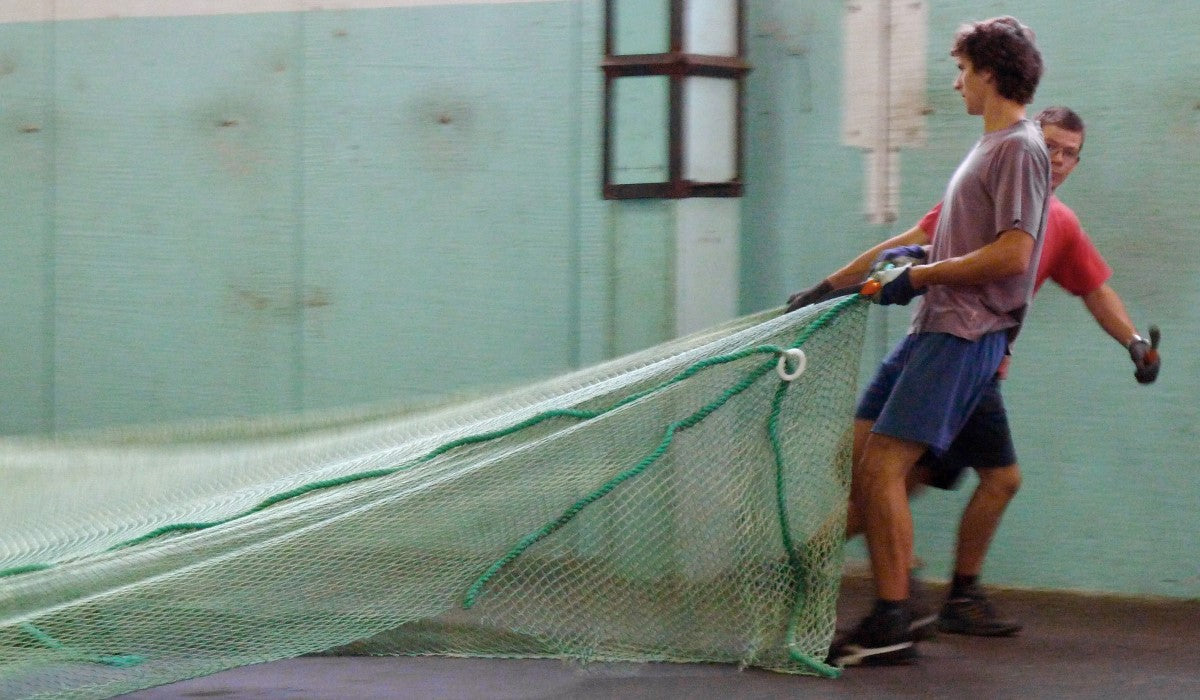Your Bag is Empty
Free UK delivery on all orders over £100. Free UK returns.

Ocean-loving and environmentally conscious, being ‘green’ is at the heart of everything we do at D&B. All our swimwear is made to last and made from ECONYL®, a recycled nylon.
But what do we know about the ancient art of recycling? And how 'green' is it really?
Well, for a start, recycling is an ancient concept - humans are thought to have repurposed and reprocessed stuff since pre-history. But the first recorded instance of paper recycling was in Japan in 1031.
By 1690, we see the first recorded example of textiles being recycled. America’s first paper mill took old fabrics, cloths, cotton and linen to produce recycled paper for printing and publication. And, in 1813, Yorkshireman Benjamin Law invented the shoddy process, grinding old clothes and rags to be re-spun into yarn.

The dawn of synthetics
After the second world war, new and entirely synthetic fabrics became popular for their strength and versatility and textiles recycling slipped.
Nylon was the first textile to be made in a lab. Invented in America in the 1920s, this stretchy, abrasion-resistant textile became popular at the beginning of World War II. Because silk, cotton, and other natural fibres were scarce during the war, producers turned to synthetic fabrics to make things like parachutes, tents and ropes.
Nylon actually refers to a family of materials called polyamides. It's a type of plastic derived from crude oil, that's then put through an intensive chemical process reacting carbon-based chemicals found in coal and petroleum in a high-pressure, heated environment. This chemical reaction forms a large polymer sheet of nylon, which is then broken into chips, melted, and drawn through a mechanical spinneret to produce individual fibres that are woven into fabric.
Sounds like an environmental nightmare, doesn’t it? Not only is nylon produced from the planet’s dirtiest industries, producing it releases nitrous oxide which is an incredibly dangerous greenhouse gas. The process also uses loads of water and energy.
The other huge problem with nylon is that it’s a plastic, and, as we know, plastic isn’t biodegradable.

The good news
But plastic is recyclable.
Inspired by the environmental crisis caused by synthetic fibres, ECONYL® is made from recycled post-consumer waste such as fishing nets and old carpets and pre-consumer waste from industrial processes such as plastic components, industrial waste and fabric scraps.
Like recycling any materials, it’s not a perfect solution - that's why recycling is the third 'R' after reducing and reusing. There’s still a manufacturing process in cleaning and weaving the recycled fibres, but it does reduce greenhouse gas emissions and save on oil as well as saving tonnes of plastic waste from going to landfill or ending up in our oceans.
So, ECONYL® saves waste that would have taken decades to biodegrade, reduces the amount of micro-plastics in our water systems and solves the issues around new nylon production – the use of fossil fuels and emission of greenhouse gases. It doesn’t biodegrade, but it can be recycled again and again.
Reduce, reuse, recycle
The first step to environmentally-conscious consumerism is to reduce waste by reducing how much we buy – that’s why we make our swimwear to last. But when you need new swimwear, it helps to know that it’s made from 100% regenerated nylon fibre that would have otherwise gone to waste.
Make it last – how to care for your D&B swimwear
ECONYL® is a pretty robust fabric – it won’t degrade in chlorine or get damaged by sun-cream. To make the most of your swimwear:
Wash at 40 degrees in your washing machine with similar colours.
